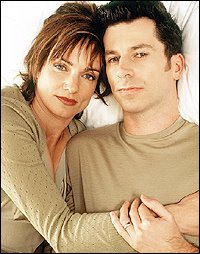When I’ve read students’ essays, I’ve never had much hesitation in determining what is congested or ungainly. It’s only when I’m reading writing that has been published after going through a rigorous editorial process that I feel far less certain about categorically stating a negative opinion. I suppose much of the certainty I have about my reading of students’ essays arises from the conviction that I’m a more advanced reader and writer than my students, an assumption, I concede, that might not always be true. Another key indicator of an essay I would describe as ‘bad’ is one that I simply can’t comprehend because it doesn’t comply at all with any known rules of English grammar. When I read writing that is not self-published, I suppose I assume that it must be ‘good’ writing according to some credible measure.
The question of what prompts anyone to declare writing either ‘good’ or ‘bad’ is a constant one for me. Most recently I have thought about this issue when reading the blog, Intersecting Lines. Its authors are very clear about what writing they like and that which they dislike. In their judgement of literature reviewers and critics, Clive James is a good writer, and Peter Craven is not. The contributors to Intersecting Lines reveal no doubts about the truth of their individual viewpoints, which seem to concur. I am not sure whether to admire such certainty, but I am definitely perplexed by it. I wonder how they arrive at their judgements. Do they ever question, within themselves, the criteria on which they premise their conclusions?
One criterion that seems to lead to a dismissal of any writer by Intersecting Lines is word choice, specifically the choice of long words when, in the blog writers’ estimation, a shorter one will do. A recent posting on Peter Craven especially prompted my thinking on the matter of word choice. Here’s an excerpt:
Now the first thing about Peter Craven (that's me) that you (the reader) are going to have to remember is that I'm really smart. Like, phenomenally smart. I'm so smart that whole cities have to be evacuated when I have a thought, because of the movement of my stupendously large brain-cells. This means that from time to time, I throw in a few big words into my review. It's obvious, really: big words for big thoughts. So here's how my review starts.
"Taken as a whole, Peter Craven's work is truly, astonishingly, omnipotently pure."
Part of my thought process was a reflection on one of my own posts about a recent column by Peter Craven on the subject of television drama. Regular readers may recall that I didn’t agree with Craven’s views, but I couldn’t argue with his command of the English language, in fact I enjoyed it. I share the authors of Intersecting Lines view that Peter Craven’s reviews have a superior tone, and since I wrote my Honour’s thesis on Australian ‘grunge’ literature, I’m all too aware of his propensity to dismiss writers and their novels out of hand, according to some Weekly Bulletin-esque sensibility, but I wonder if the problems of his tone and his opinions are reducible to using big words.
Another memory, this time from primary school. Mr E, who had a lump on his leg that was later surgically removed, came and sat at the desk next to mine during a period when each member of the class was working individually. He engaged me in conversation while at the same time he read from a dictionary. I asked him about the dictionary and he said he often read it, randomly, hoping to discover new words. My ten-year old mind was impressed with the idea and I decided, then and there, it was a habit I would also practice. It was in this way that I found ‘pusillanimous’, a word that was impressively big and able to be used as a kind of code word; a word you could use confidently amongst your closest friends to the bewilderment of others. But, how to use it in a sentence? Perhaps, ‘The pusillanimous critic’s opinions were held in little regard.’? Or would it be less elite, and therefore better, to write, ‘The craven critic’s opinions were not shared by many others.’? Or better still, since it’s alliterative, ‘The lily-livered critic’s opinions were readily lampooned.’?
‘Pusillanimous’ is a word that represents to me the constant struggle I wage between the delight in discovery and knowledge and wanting to share that with others, and the need to temper my ego that revels like a glutton in showing off how clever I am. While reading How to Get a PhD, I’ve discovered that I’m a serialist writer, rather than an holistic writer. While the holistic writer, plans the big picture, the serialist revels in the details, unable to move on until each sentence is deemed perfect. I don’t think it’s the most efficient way to write, but it means that I derive great pleasure from searching for the perfect word. The perfect word is not always a big word, but sometimes it is. I have never used ‘pusillanimous’ in a sentence, written or spoken (before today), but I once read it used to good effect in a column by Phillip Adams—surely on something about one of the current government’s policies. I still hold that it might be useful to me one day. I might use it to achieve just the right tone to describe a writer’s work; the sound of it could resonate perfectly with its meaning when the future sentence I write is read aloud. Is there any reason why an advanced vocabulary, handled well, should not be employed by a reviewer of literature or any other writer, who can assume his or her readers have a highly developed vocabulary or at least handy access to a dictionary? Is she not allowed to use the language of her craft when communicating with her peers, just as any other profession must?
Perhaps my questioning of the contributions to Intersecting Lines arises from the fear that my writing may be subject to the same criticism, the same ready dismissal. I think there is truth in that. It would just be awful after working so hard at the difficult task of writing to have that work so—it seems—thoughtlessly discarded, without being afforded due respect for the effort expended. It’s not that I am terribly sorry for Peter Craven, because he is so often guilty of the same thing, even with his eloquent prose, but I do feel for the multitude of other writers that apparently do not make the Intersecting Lines grade either. I am not sure what it takes to make the grade. Even James Joyce is not up to scratch.
I don’t know. I just feel uncomfortable when I read Intersecting Lines.



